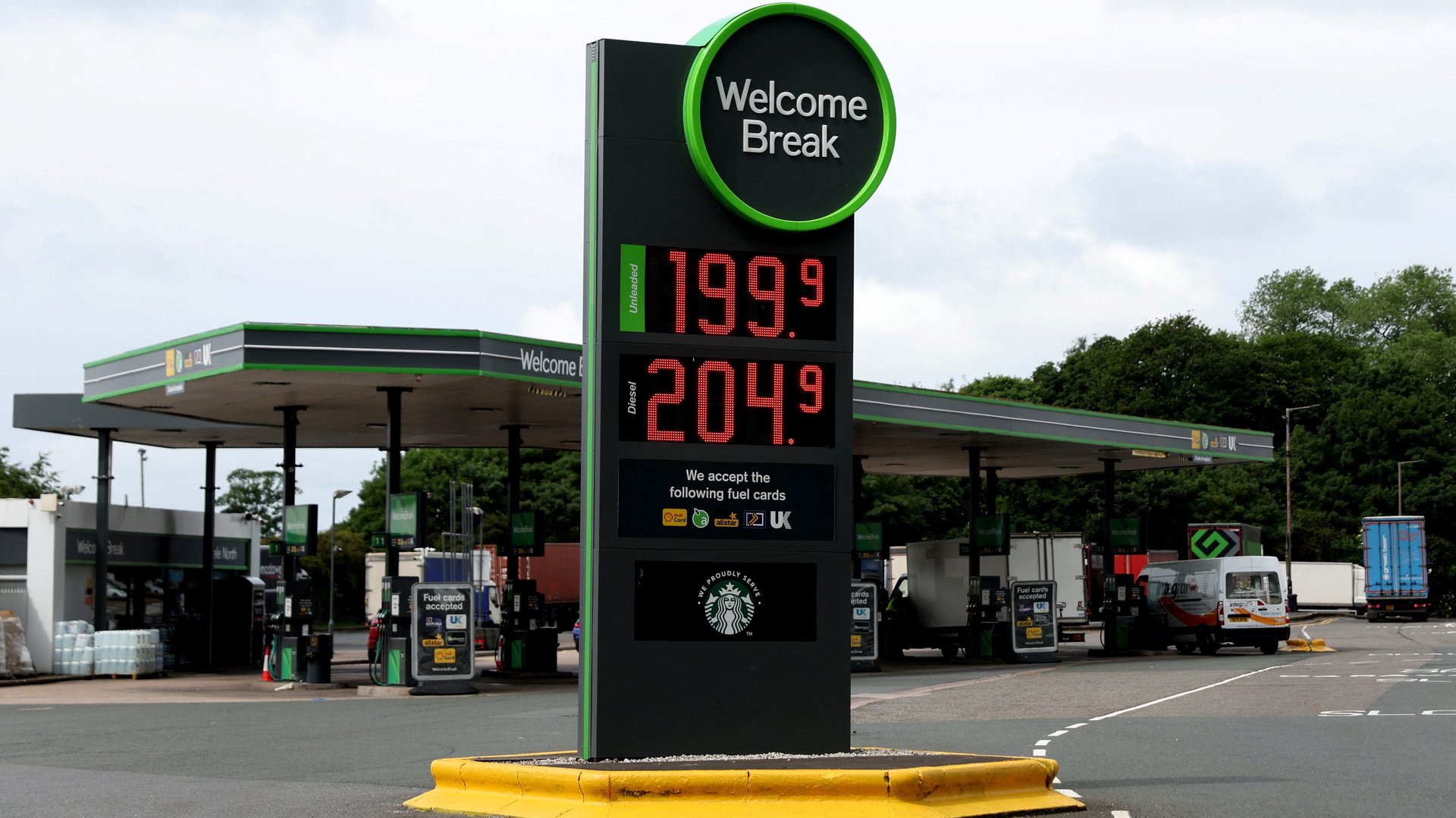Gas prices are so high they’re making governments suspicious
Governments are slashing gasoline levies to bring prices down. So why are customers paying record prices to fuel up?


Governments are slashing gasoline levies to bring prices down. So why are customers paying record prices to fuel up?
In Germany and the UK, fuel companies are facing new government inquiries to determine if high fuel prices are the result of anti-competitive practices—the kind of review that president Joe Biden asked the Federal Trade Commission to conduct last fall, and that is still ongoing.
All three nations are reeling from sticker shock as prices of gasoline soar in the wake of the Russia-Ukraine war. Over the weekend, the cost of a gallon of gas in the US topped $5 for the first time in history. At the same time, the UK witnessed its own new record, translating to roughly $8.54 a gallon.
Are oil companies colluding to keep gas prices high?
The surge in these prices has prompted government action. Germany wants to arm its competition authorities to come down hard on fuel companies that are failing to pass on the benefits of emergency tax cuts to consumers. Germany had cut the fuel levy by 30 euro cents per liter of gasoline beginning June 1, forging roughly $3.1 billion in revenue—but there has been no commensurate drop in the price of gasoline. In a radio interview, Robert Habeck, Germany’s economy minister, called for a revised antitrust law “with teeth and claws.”
Oil companies may claim, of course, that the tax break has been overtaken by the cost of producing and transporting gasoline. Part of the government’s inquiry will involve a probe of the refining and wholesale stages of the gasoline sector, to determine if cost escalations are indeed behind the spike in pump prices.
The UK’s Competition and Markets Authority (CMA) is beginning a similar inquiry as well. The British government had also cut fuel levies in March, for a period of 12 months, amounting to a total of roughly £5 billion ($6.1 billion). Yet, as Kwasi Kwarteng, the business secretary, wrote to the CMA (pdf): “The British people are rightly frustrated that the £5 billion package does not always appear to have been passed through to [gas station] prices and that in some towns, prices remain higher than in similar, nearby towns.”
Although the German government has promised stiff fines if any anti-competitive activity is discovered, such inquiries rarely result in strict punitive action. Corporations cannot be forced to pass on tax cut benefits to their customers. Competition watchdogs can only investigate if oil companies are colluding to keep prices artificially high, which is difficult to prove to a legal standard.